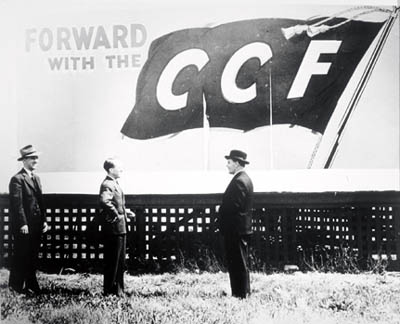Michael’s earlier post regarding Harper is in the spirit of Frye, who wrote to Helen the day after his 21st birthday:
At Confederation the Conservative and Liberal parties represented opposed urban and rural interests, but the Conservatives were in power so long that the Laurier Liberals adopted practically their platform. So that since 1906 or 1911 or whenever it was or, for practical purposes, since 1867 there has been no real opposition in Canada, but only occasional shiftings of government due to scandals, slogans, bribery, disgust or the long continued graft of one party, and so on. The C.C.F. means a genuine labor agricultural opposition. Again, it should be the typical party of Canada and the political expression of the same movement of which the United Church is the religious expression. The connection between the two is brought out by the New Outlook. That is why it is socialistic. Government control of industry is essential if we are not to become a mere dumping ground for England and the U.S.A., just as a distinctive religious organization is necessary for the reasons I have gone over so often with you.
The Canadian Encyclopedia article on the C.C.F. here.


Bob, the passage you quote reminds me that that some of Frye’s most trenchant defenses of literature and art as inextricably linked to a social vision were occasioned the time of his most marked political commitment, during his tenure as an editor and writer for the Canadian Forum–understandably, since it was a time when fascism was afoot in the fullness of its death-wish and evil, and when Frye felt the need to speak most strongly in terms of the relationship between attacks on the autonomy of art and literature and the threat to freedom and civilization.
I think the emergence of the New Left with all its confused thinking and the consequent excesses of the sixties were a turning-point in Frye’s thinking, not that he became more conservative or right-wing–far from it–but as a consequence of a clearer perception of the destructive nature of ideological polarization, on the right and the left. It is the New Left, after all, that we must thank in the end for the militantly pan-ideological legacy of critical theory and cultural studies. The critic-as-“pan-ideologue” (Frye’s term) illustrates how inimical ideology is to literature and art, for, when push comes to shove, the militant will always sacrifice imaginative vision to the baleful logic of paranoia and expediency.